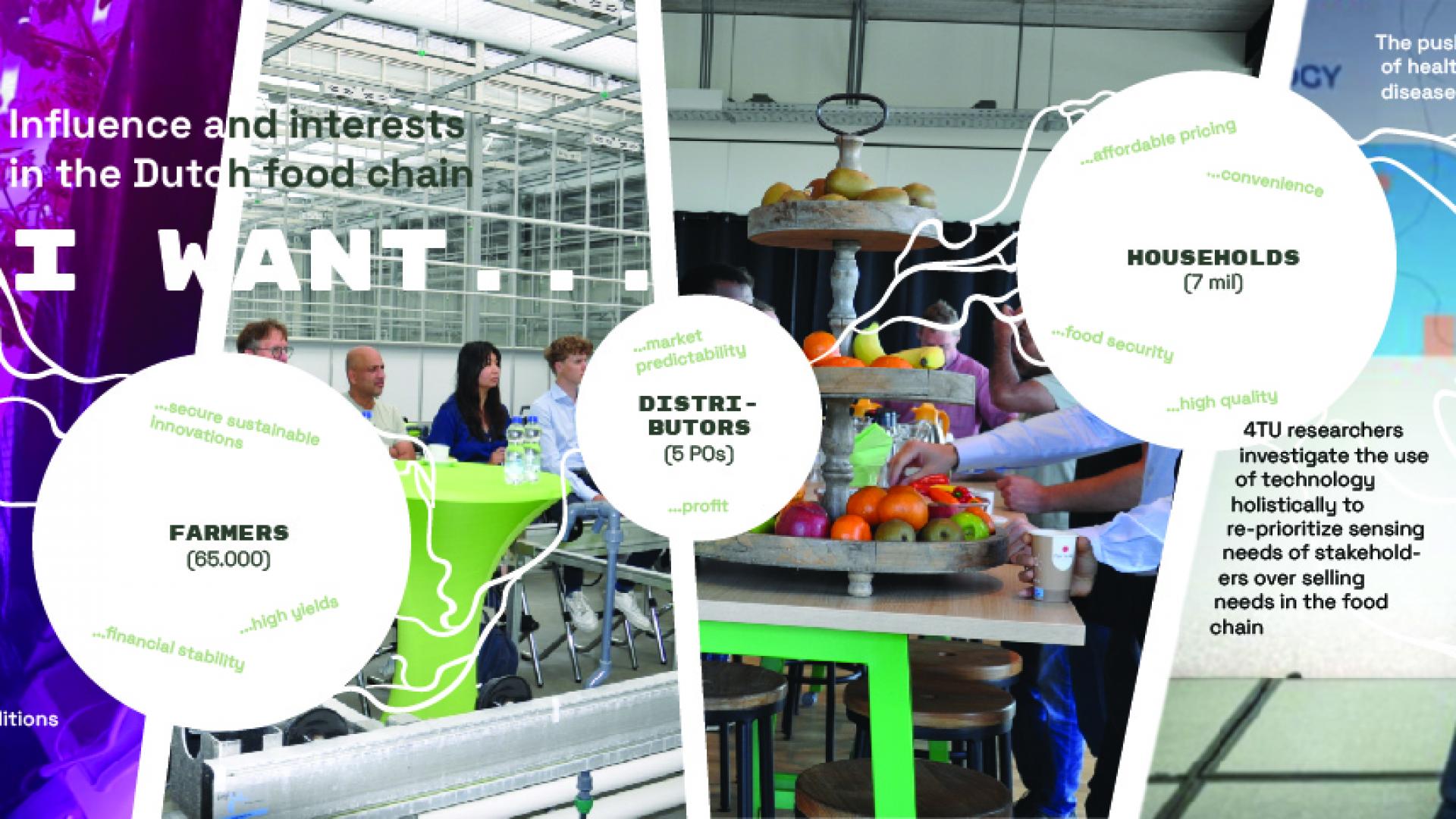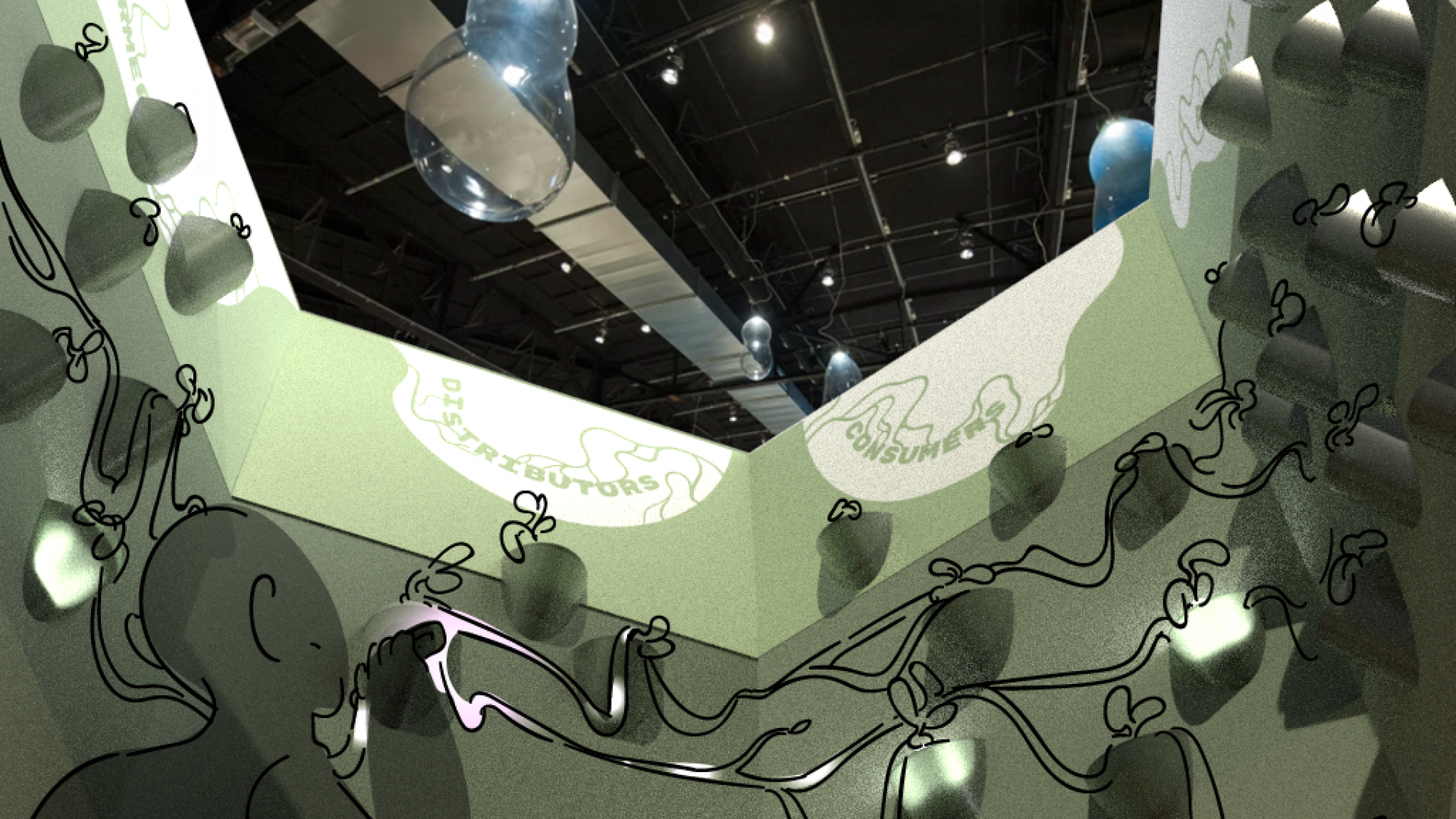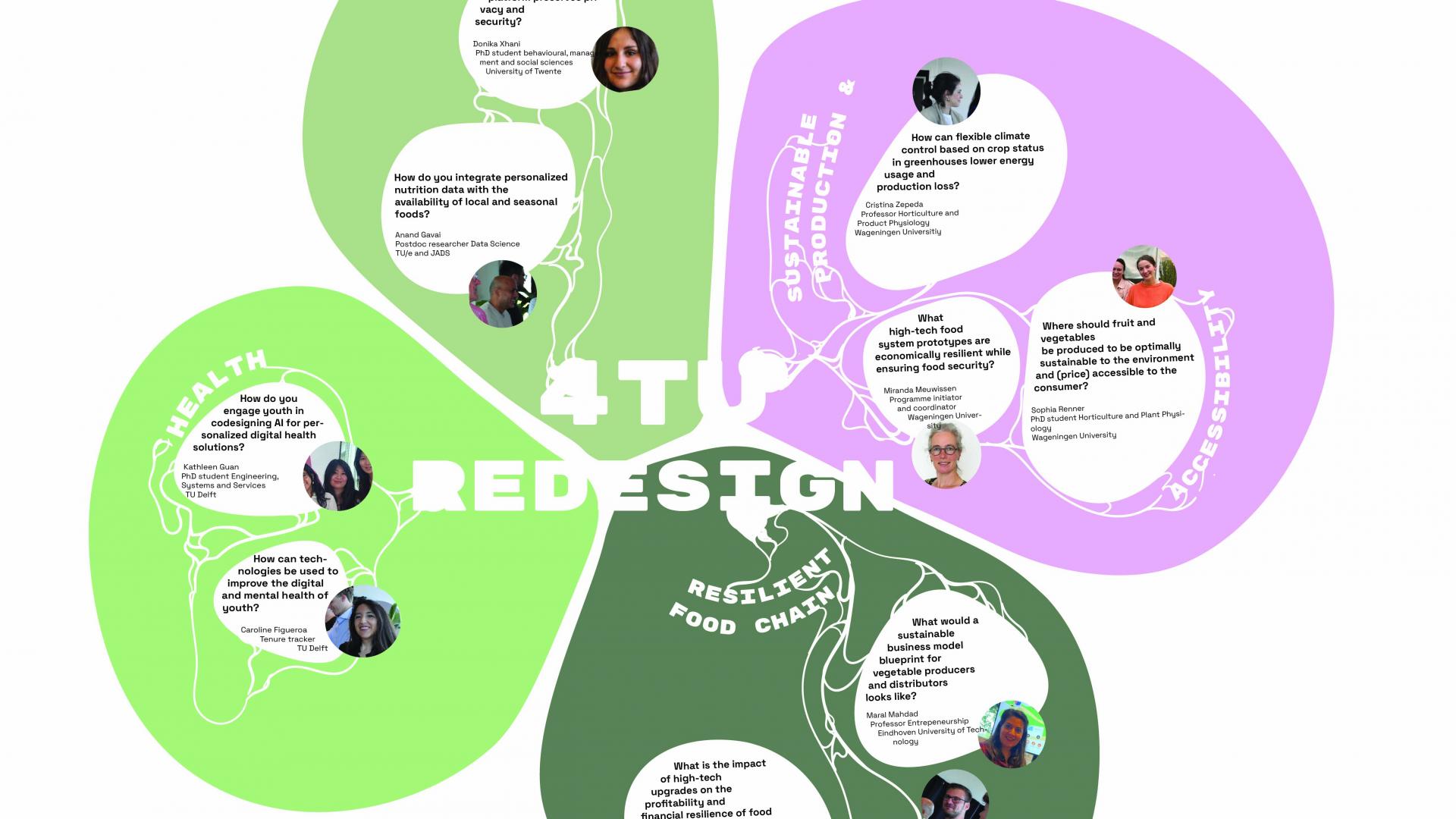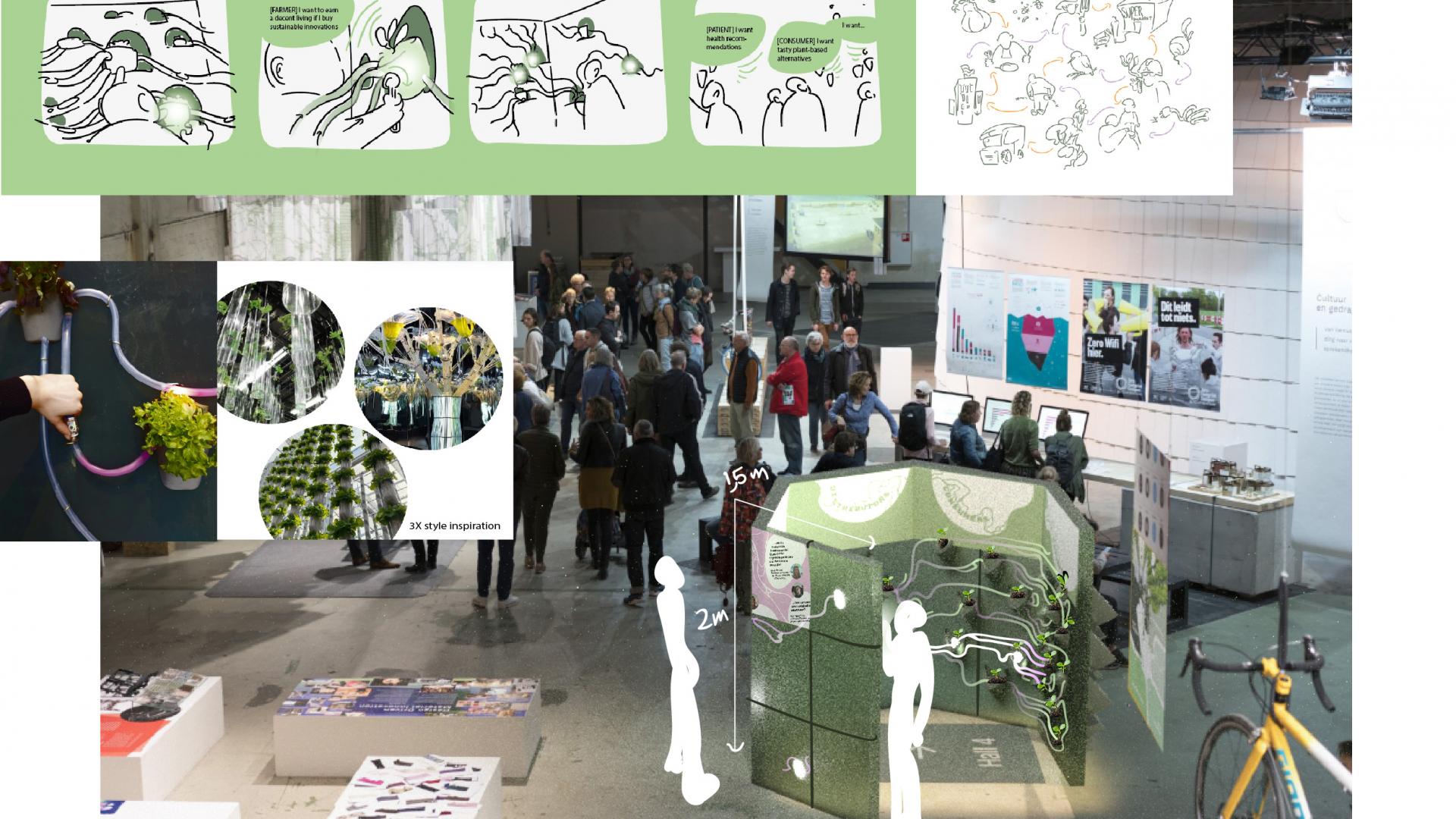The Present
In the Dutch competitive food sector, the demand to produce without considering environmental conditions is depleting natural resources, while the push for consumption regardless of health needs is leading to nutrition-related disease globally. In attempts to solve this with innovation, the most affected are often the ones left out of the conversation. We are in urgent need of a system-wide food system transition with technology that enables local embedding, healthy food, environmental sustainability, and resilience to take a central role.
The Possible
Now imagine a future, where local demand is fulfilled daily by a supply of locally grown, sustainable and nutritious fruits and vegetables. A personal need, for instance triggered by health issues, is automatically translated into the autonomous growing environment, tailoring the growing conditions to the crop, the season and the resources. In this way, every day the exactly required amount, quality and nutritional value of vegetables and fruits will be produced locally. Products are delivered to the consumer through smart logistic solutions combining small batches in order to prevent traffic congestions. Consumers are the owner of their own data so they fully trust the system and are happy to feed it with additional health, exercise and fitness data through apps, wearables and IoT devices. Entrepreneurs and start-ups also find their business case in this system as there is full transparency about commodity flows, true costs and production risks thereby enabling them to develop a sustainable business.
Navigating to the Possible: Reversing the Food Chain
A team of researchers from the four Dutch Universities of Technology are collectively building on making this possible. We do so by connecting different academic disciplines, and actively working with partners in the field. We identify problems in the existing food chain and develop innovative solutions to overcome these. By doing so, we aim to create a holistic data-driven solution that will help to reprioritize well-being and sustainability or 'reverse' the food chain and be replicable in different places.
The exhibition introduces you to the involved researchers, and shows what it is like to build a better food system. Inside our greenhouse, you can listen and interact with conversations between stakeholders to better understand their needs. Reaction ripple through the system as interests can align or conflict. You thereby can experience what it is like to be a researcher including these stakeholders' needs in a food system transition. This means paying attention to economic, health and environmental costs and benefits, as engineering for society is a careful balancing act. We invite you to come take a listen with us!
 Free wifi available
Free wifi available
 Toilets available
Toilets available
 Fully wheelchair accessible
Fully wheelchair accessible
 Wheelchair friendly toilet available
Wheelchair friendly toilet available





